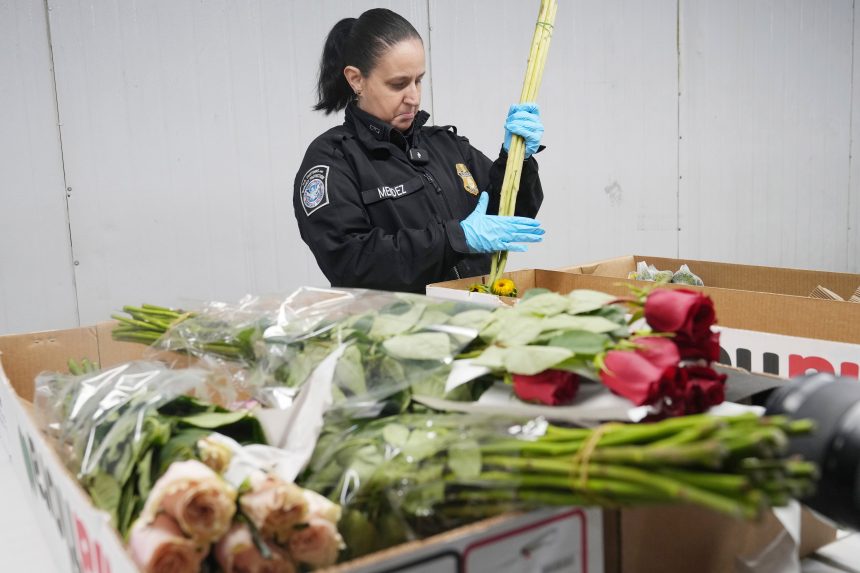Your support helps us to tell the story
From reproductive rights to climate change to Big Tech, The Independent is on the ground when the story is developing. Whether it’s investigating the financials of Elon Musk’s pro-Trump PAC or producing our latest documentary, ‘The A Word’, which shines a light on the American women fighting for reproductive rights, we know how important it is to parse out the facts from the messaging.
At such a critical moment in US history, we need reporters on the ground. Your donation allows us to keep sending journalists to speak to both sides of the story.
The Independent is trusted by Americans across the entire political spectrum. And unlike many other quality news outlets, we choose not to lock Americans out of our reporting and analysis with paywalls. We believe quality journalism should be available to everyone, paid for by those who can afford it.
Your support makes all the difference.
People might be able to get their loved ones an extra boquet of flowers this year as 940 million flowers have gone through the Miami International Airport.
As Valentine’s Day gets closer with February 14 only a few days away, U.S. Customs and Border Protection reported agricultural specialists at Miami International Airport have processed almost one million cut flower stems as various types of flowers arrived from hundreds of flights, mostly from Colombia and Ecuador, to Miami in order to be sold by florists and supermarkets across both America and Canada.
Around 90 percent of the fresh cut flowers being sold for Valentine’s Day in the country come through Miami, while the other 10 percent pass through Los Angeles.
Miami’s largest flower importer is Avianca Cargo, based in Medellín, Colombia. In the past three weeks, the company has transported about 18,000 tons of flowers on 300 full cargo flights, senior vice president Diogo Elias said during a news conference last week in Miami.
“We transport flowers all year round, but specifically during the Valentine’s season, we more than double our capacity because there’s more than double the demand,” Elias said.
Flowers continue to make up one of the airport’s largest imports, Miami-Dade chief operation officer Jimmy Morales said. The airport received more than 3 million tons of cargo last year, with flowers accounting for nearly 400,000 tons, worth more than $1.6 billion.
“With 1,500 tons of flowers arriving daily, that equals 90,000 tons of flower imports worth $450 million just in January and February,” Morales said.
It’s a big job for CBP agriculture specialists, who check the bundles of flowers for potentially harmful plant, pest and foreign animal diseases from entering the country, MIA port director Daniel Alonso said.
“Invasive species have caused $120 billion in annual economic and environmental losses to the United States, including the yield and quality losses for the American agriculture industry,” Alonso said.
Colombia’s flower industry was recently looking at a possible 25 percent tariff, as President Donald Trump quarreled with the South American country’s leadership over accepting flights carrying deported immigrants. But the trade dispute came to a halt in late January, after Colombia agreed to allow the flights to land.
Colombian President Gustavo Petro had previously rejected two Colombia-bound U.S. military aircrafts carrying migrants. Petro accused Trump of not treating immigrants with dignity during deportation and threatened to retaliate against the U.S. by slapping a 25 percent increase in Colombian tariffs on U.S. goods.
Officials at Friday’s news conference declined to answer any questions about politics or tariffs.
Additional reporting from The Associated Press.







